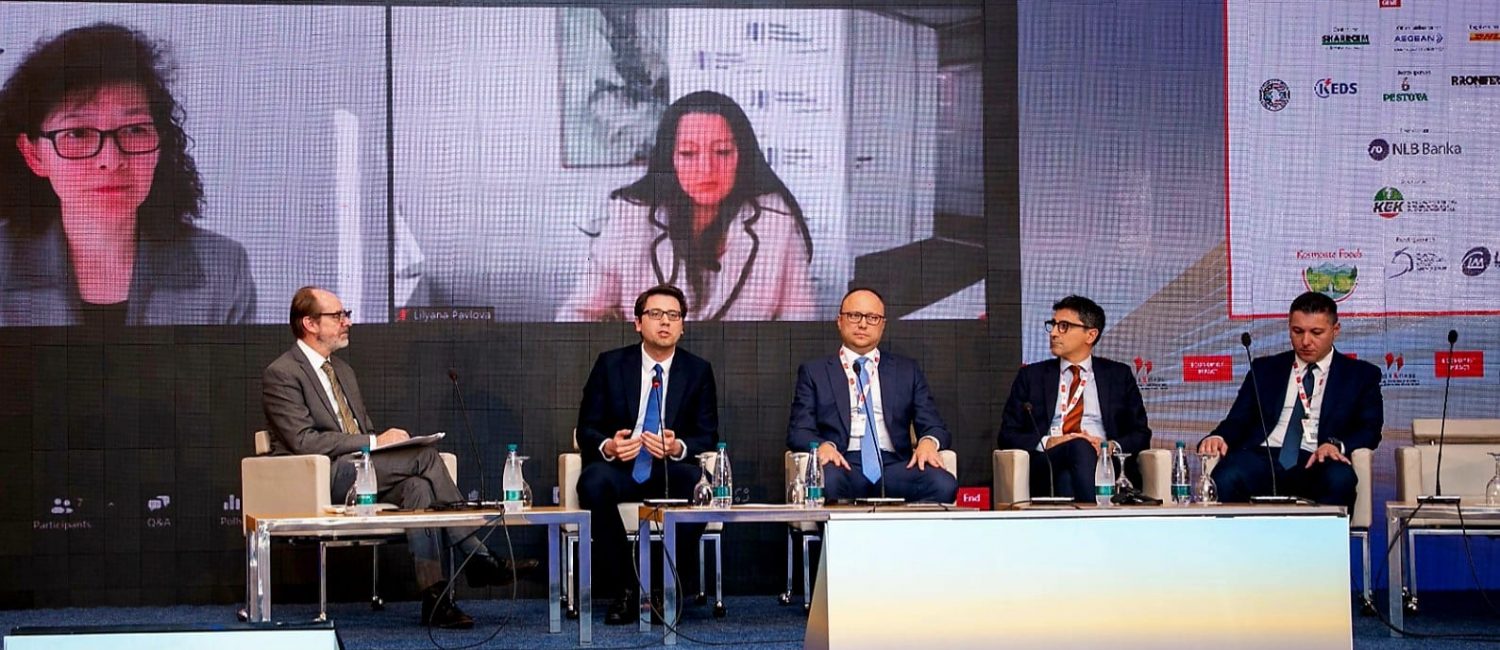25th October 2022, Skopje – Managing public money in a crisis is tough, however, it is important to do it responsibly, i.e. to seek a way to finance the deficit, as well as keep it at a sustainable level, while paying attention to the public debt amount. Deciding not to issue Eurobond this year but rather making borrowings from international financial institutions at twice lower interest rates, has also been aimed thereto, thus making substantial savings on the basis of interests for the upcoming years.

This pointed out by Deputy Minister of Finance, Filip Nikoloski, having his address at the panel discussion, covering the topic “Investing in the Western Balkans for a Resilient Growth Model” at the “Economist” Annual Summit, taking place in Pristina, Republic of Kosovo.
He underlined that the manner in which the newly borrowed money is spent and the target thereof, was always important. “We adopted two sets of anti-crisis measures, totaling more than EUR 750 million, being geared towards supporting the population, in particular the vulnerable categories and the business sector”, Nikoloski said.
He went on that Republic of North Macedonia is, at the same time, working on undertaking measures aimed at coping with the crisis and supporting the economy, as well as the fiscal consolidation, i.e. reducing the budget deficit and the public debt.
“Fiscal consolidation and efficient and sustainable reduction of the fiscal deficit require mixture of measures on both budget revenue and budget expenditure side. Fiscal Sustainability and Economic Growth Plan was adopted, being based upon fiscal consolidation via measures aimed at streamlining certain expenditures and measures for more efficient revenue collection, policy consistency in the budget planning process, by connecting the budget planning with the Government Program and the economic reforms, as well as evaluating the performance as regards the conducted budget policies.
He thereby stressed that the economic policies and measures contained in the Fiscal Sustainability and Economic Growth Plan, the Public Investment Plan and the Growth Acceleration Plan are a basis for increasing the growth potential and attaining higher growth rates in the medium term, i.e. doubling the economic growth compared to the one achieved last decade.
Support extended by international financial institutions is significant in implementing those policies and measures. Under the Growth Acceleration Plan, investments projected in the next five years, amount to more than EUR 4 billion, pertaining to infrastructure projects, renewable energy sources, coupled by private sector investments, which will contribute to increasing the economic growth to 5%.
During the panel discussion, Nikoloski also stressed that the priorities set by our Government correspond to the EU agenda and the reforms the country undertakes on its path to EU integration. This process, as he said, is gaining momentum by launching the EU membership negotiations.
















